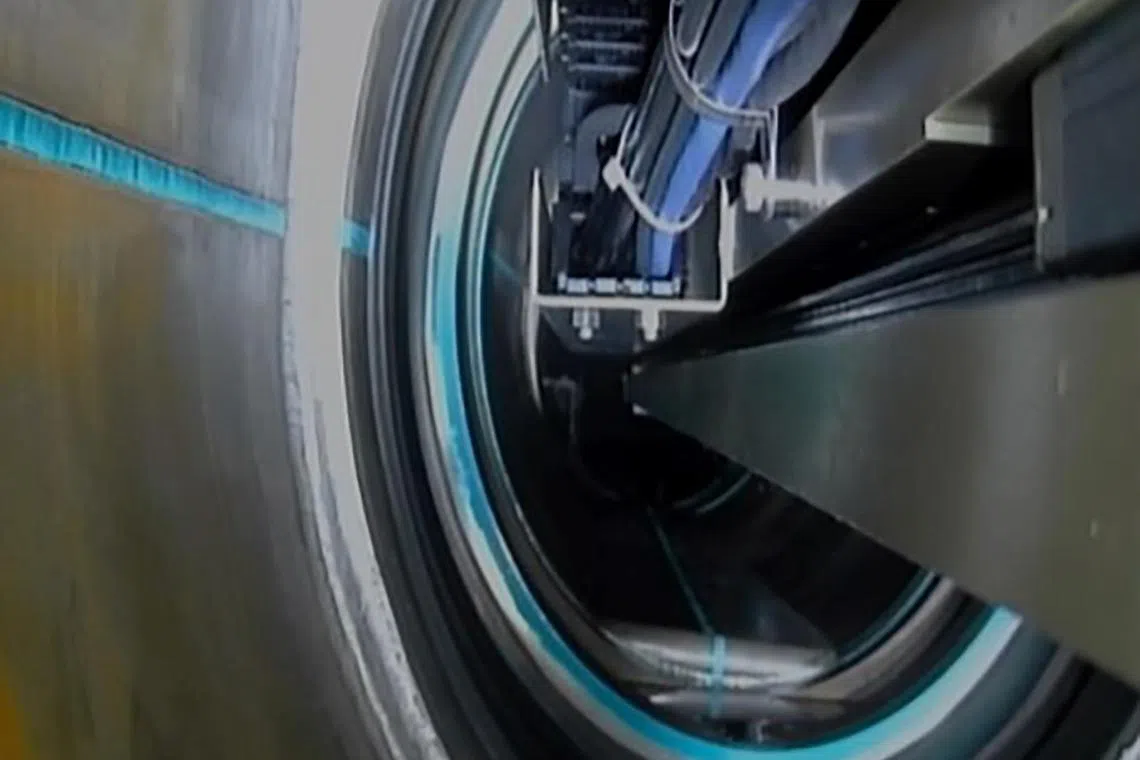Japan suspends trial removal of Fukushima nuclear debris
Sign up now: Get insights on Asia's fast-moving developments

Radioactivity levels inside the Fukushima plant are far too high for humans to enter, and engineers in September tried to remove a small sample of the debris inside.
PHOTO: EPA-EFE
TOKYO – The operator of Japan’s stricken Fukushima nuclear plant said on Sept 17 that it has suspended an operation to remove a sample of highly radioactive material because of a new technical problem.
Extracting the estimated 880 tonnes of highly radioactive fuel and debris inside the former power station remains the most challenging part of decommissioning the facility, which was hit by a catastrophic tsunami in 2011.
Radioactivity levels inside are far too high for humans to enter, and earlier in September, engineers began inserting an extendable device to try and remove a small sample.
However, Tokyo Electric Power Company (Tepco) had to halt the procedure on Sept 17 after noticing that remote cameras on the apparatus were not beaming back images to the control centre.
“We are investigating the cause of the problem,” Tepco spokesman Tatsuya Matoba told AFP.
“We need to find out the cause of the trouble before resuming,” he said.
Tepco originally planned to start on Aug 22, aiming to collect 3g for analysis, but technical problems caused a delay.
Three of Fukushima’s six reactors went into meltdown after a tsunami triggered by Japan’s biggest earthquake on record swamped the facility in one of the world’s worst atomic accidents.
Japan began in 2023 releasing into the Pacific Ocean
China and Russia banned Japanese seafood imports as a result,
In a Tepco initiative to promote food from the Fukushima area, swanky London department store Harrods began selling peaches grown in the region in September. AFP


